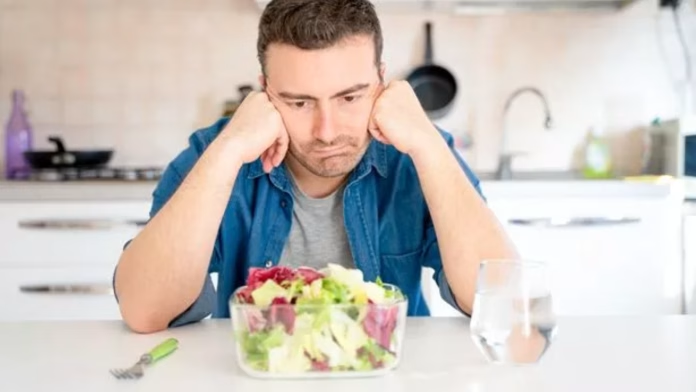In today’s health-conscious society, dieting has become a popular trend for those looking to achieve their fitness goals and improve their overall well-being. People embark on various diets, ranging from low-carb to plant-based, in their quest for a healthier lifestyle. However, while the initial enthusiasm for starting a new diet is often high, many individuals eventually experience a phenomenon known as diet burnout. This state of exhaustion and frustration can lead to the abandonment of healthy eating habits and a return to old, unhealthy patterns.
In this comprehensive article, we will delve into the shocking truth about diet burnout and provide you with valuable insights and strategies to overcome it.
Understanding Diet Burnout:
Diet burnout refers to a state of mental and physical fatigue that individuals experience as a result of prolonged and restrictive dieting. It is characterized by a loss of motivation, feelings of deprivation, and an overwhelming desire to give up on the diet altogether. The journey towards achieving health and fitness goals can be challenging, and the pressure to adhere to strict dietary rules can become overwhelming. Diet burnout is not only demotivating but also counterproductive to long-term success. Therefore, it is crucial to recognize the signs and understand the underlying causes of diet burnout.
Causes of Diet Burnout:
- Unrealistic Expectations: Setting unattainable goals or expecting rapid results can lead to frustration and disappointment. It is essential to set realistic expectations and embrace the idea that sustainable changes take time.
- Monotony and Restriction: Following a monotonous and restrictive diet can quickly become tiresome. Eating the same foods repeatedly or depriving oneself of favorite treats can contribute to feelings of deprivation and eventually result in diet burnout.
- Lack of Flexibility: Rigid dietary guidelines that leave no room for occasional indulgences or social gatherings can make it challenging to sustain a diet long-term. It is important to incorporate flexibility and moderation into your eating plan to avoid feelings of restriction.
- Emotional Factors: Emotional stressors, such as a negative body image or an unhealthy relationship with food, can significantly impact one’s ability to stick to a diet. Emotional eating and using food as a coping mechanism can lead to burnout and hinder progress.
- Overwhelm and Information Overload: The abundance of conflicting information and the pressure to follow the latest diet trends can create confusion and overwhelm. Trying to keep up with ever-changing guidelines can contribute to diet burnout.
Overcoming Diet Burnout:
- Set Realistic Goals: Instead of focusing solely on weight loss or quick results, set realistic and sustainable goals. Aim for progress rather than perfection and celebrate small achievements along the way.
- Variety and Balance: Incorporate a wide range of foods into your diet to avoid monotony and ensure you receive a diverse array of nutrients. Embrace a balanced approach that includes whole grains, lean proteins, fruits, vegetables, and healthy fats.
- Practice Mindful Eating: Pay attention to your body’s hunger and fullness cues. Eat slowly, savor each bite, and cultivate a mindful eating practice. This can help you develop a healthier relationship with food and prevent feelings of deprivation.
- Embrace Flexibility: Allow yourself occasional indulgences and enjoy social gatherings without guilt. Allowing for flexibility in your diet promotes a sustainable and balanced approach to eating.
- Seek Support: Connect with a support system, whether it’s friends, family, or a community of like-minded individuals. Sharing your challenges and triumphs with others who understand can provide encouragement and motivation.
- Address Emotional Factors: If emotional factors are contributing to diet burnout, consider seeking professional help or counseling. Working with a therapist or registered dietitian who specializes in intuitive eating or mindful eating can help you develop a healthier relationship with food and address underlying emotional issues.
- Practice Self-Care: Take care of yourself beyond your dietary habits. Engage in activities that bring you joy, reduce stress, and promote overall well-being. Prioritize sleep, manage stress levels, and engage in regular physical activity.
- Shift Your Mindset: Instead of viewing your eating plan as a temporary diet, adopt a long-term lifestyle approach. Focus on nourishing your body with wholesome foods and making sustainable changes that will benefit your health in the long run.
Final Thoughts:
Diet burnout is a common challenge that many individuals face on their journey towards a healthier lifestyle. However, it is important to recognize that it is a temporary setback that can be overcome. By understanding the underlying causes of diet burnout and implementing strategies to address them, you can regain motivation, find balance, and create sustainable habits. Remember, the path to health and well-being is not a linear one, and setbacks are a natural part of the process. Embrace self-compassion, be patient with yourself, and focus on progress rather than perfection. With the right mindset and a holistic approach, you can overcome diet burnout and continue your journey towards a healthier, happier you.





